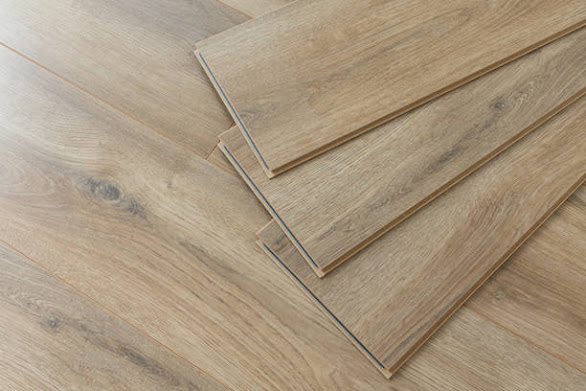Hardwood vs. Engineered Wide Plank Flooring: Which Should You Choose?
Choosing the right flooring for your space is like picking the perfect pair of shoes – it needs to be comfortable, stylish, and durable.
In the world of flooring, hardwood and engineered wide plank flooring are two popular options, each with its own set of characteristics. But how do you decide between the two?
Here, we break down the features, benefits, and drawbacks of each to help you make an informed choice.
Let’s get started.
Choosing Hardwood or Engineered Wide Plank Flooring
Engineered and hardwood wide plank flooring are both excellent choices, each with its pros and cons. Let's dive into the details and find out which suits your lifestyle and preferences best.
Understanding Hardwood Flooring
Hardwood flooring is a timeless classic. It is made from solid wood planks and adds a warm, natural touch to any space. With a variety of wood species to choose from, hardwood offers a range of colours and grain patterns. Choosing wide plank hardwood flooring can help create a sense of space and is a great idea for small and large spaces.
Exploring Engineered Wide Plank Flooring
Engineered wide plank flooring is a modern alternative. It consists of a top layer of natural wood bonded to layers of high-quality plywood. This construction provides stability and resistance to moisture, making it suitable for areas where traditional hardwood may not thrive, like kitchens.
Durability: A Battle of the Titans
Durability is a critical factor in flooring decisions. Hardwood is known for its longevity and can be refinished multiple times, but engineered flooring is engineered for stability, making it less prone to warping in humid conditions.
It is essential to consider the installation area when choosing any flooring option; that way, you can make the best decision for your space.
Installing: Do It Yourself or Hire an Expert?
Thinking of installing your own flooring? Hardwood installation can be difficult and needs to be done carefully to avoid problems. On the other hand, engineered flooring is more easily assembled at home because it frequently has click-lock mechanisms.
However, it is very important to consider hiring help for proper installation. Hiring pro installation services has many benefits and should be considered. While it may cost more, it will also ensure the best installation, eliminating future installation-related issues.
3. Style and Aesthetics
The aesthetic appeal of your flooring sets the tone for your entire space. Hardwood exudes a classic charm, while engineered wide plank flooring offers a contemporary, wide plank look.
Your style preference will play a crucial role in this decision as both options tend to look similar.
4. Maintenance: Effort vs. Elegance
For your flooring to last a long time, maintenance is necessary. Hardwood flooring requires frequent upkeep, such as refinishing, whereas engineered flooring needs less. Think about how prepared you are to work for that classic elegance.
At the same time, you will need to use proper cleaning products for your floors so that they last a long time. Avoid harsh cleaning agents such as bleach or vinegar on your wooden and engineered flooring, as these can be damaging.
5. Budget Considerations
Your budget is a significant factor in this choice. While hardwood can be more expensive upfront, its longevity and timeless appeal may justify the cost. Engineered flooring provides a cost-effective alternative without compromising style.
Consider factors such as installation cost and other factors such as the installation area and buying extra supplies such as transitions and mouldings when planning your renovation.
6. Resale Value: What Adds More Home Value?
Thinking long-term? Hardwood flooring has a solid track record of adding resale value to homes. Engineered flooring, though more affordable, may not have the same impact on your property’s value.
7. Wide Plank Appeal
Wide plank flooring has its own unique charm. Hardwood and engineered options are available in wide plank styles, but the manufacturing process can influence the authenticity of the wide plank look.
8. Climate Considerations
Your geographical location matters, as climate considerations come into play with both types of flooring. Hardwood can react to humidity by expanding or contracting, while engineered flooring is designed to resist these changes.
9. Pet-Friendly Flooring
If you have furry friends at home, pet-friendly flooring is a must. Scratches and dents are inevitable, but some flooring types handle them better. Consider the needs of your pets when making this decision.
Frequently Asked Questions:
Can I install engineered flooring in bathrooms or kitchens?
Yes. Engineered flooring's layered construction makes it more moisture-resistant and suitable for bathrooms and kitchens.
Is hardwood flooring suitable for homes with pets?
Absolutely. Hardwood flooring is durable and, with proper maintenance, can withstand pets' daily activities.
Are there eco-friendly options within engineered flooring?
Yes, many manufacturers offer engineered flooring with sustainable and eco-friendly materials, aligning with green living practices.
How often should I refinish hardwood flooring?
The frequency of refinishing depends on factors like foot traffic and wear. On average, it is recommended every 7-10 years.
Weigh the pros and cons of hardwood and engineered hardwood wide plank flooring based on your lifestyle, preferences, and budget. Making the right choice ensures satisfaction for years to come. There's no one-size-fits-all answer in the grand debate of hardwood vs. engineered wide plank flooring. Your decision instead depends on your unique needs and tastes. Take your time, explore your options, and envision the flooring that best complements your lifestyle.




Comments
Post a Comment